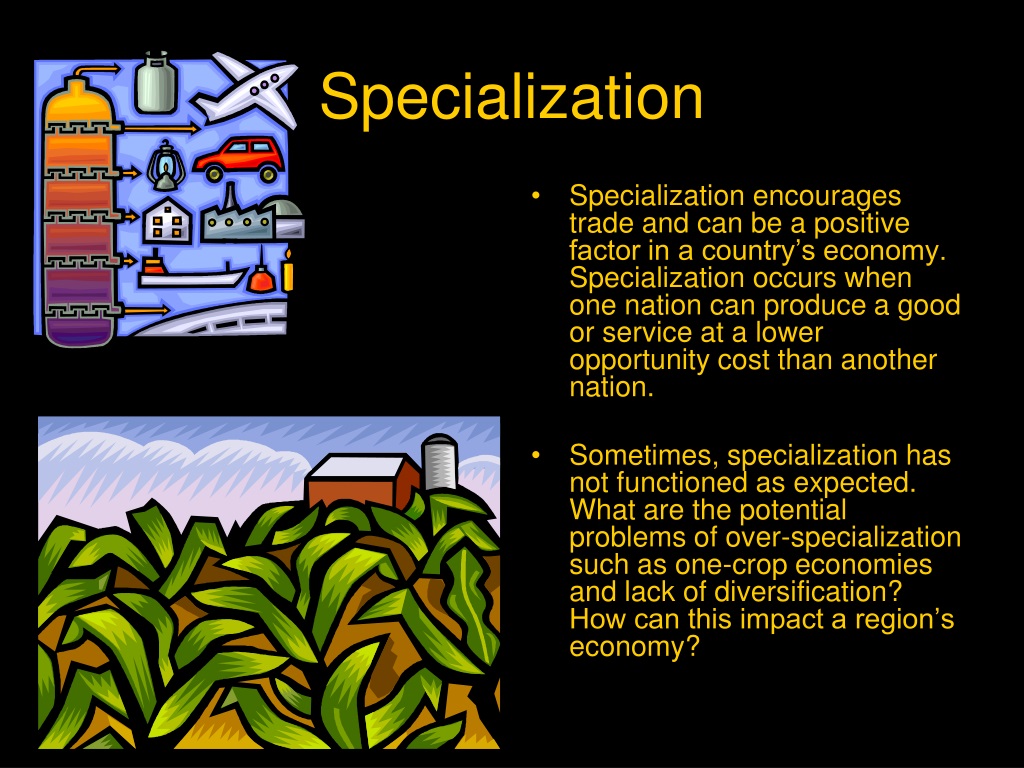The Art of Specialization: Finding Success in a Focused Market
Related Articles: The Art of Specialization: Finding Success in a Focused Market
Introduction
In this auspicious occasion, we are delighted to delve into the intriguing topic related to The Art of Specialization: Finding Success in a Focused Market. Let’s weave interesting information and offer fresh perspectives to the readers.
Table of Content
- 1 Related Articles: The Art of Specialization: Finding Success in a Focused Market
- 2 Introduction
- 3 The Art of Specialization: Finding Success in a Focused Market
- 3.1 Understanding the Power of Specialization
- 3.2 Identifying and Defining Your Niche
- 3.3 Developing a Niche-Specific Strategy
- 3.4 Navigating the Challenges of Specialization
- 3.5 FAQs about Specializing in a Niche
- 3.6 Tips for Success in a Niche Market
- 3.7 Conclusion: The Power of Focus in a Competitive World
- 4 Closure
The Art of Specialization: Finding Success in a Focused Market

In the vast and competitive landscape of modern business, the ability to stand out from the crowd is paramount. This is where the concept of specialization, or honing in on a specific niche, becomes a powerful strategy. By focusing on a particular segment of the market, businesses can gain a distinct advantage by becoming experts in a specific area. This allows them to cater to a defined audience with specialized products, services, and marketing efforts, ultimately leading to greater success.
Understanding the Power of Specialization
The benefits of specializing are numerous and far-reaching:
1. Enhanced Expertise: By focusing on a specific niche, businesses can delve deeper into the intricacies of their chosen field. This allows them to acquire a profound understanding of customer needs, market trends, and competitive dynamics within that particular segment. This deep knowledge translates into a competitive edge, enabling businesses to develop innovative solutions and provide superior value to their target audience.
2. Targeted Marketing and Communication: Specialization simplifies marketing efforts by allowing businesses to tailor their messaging and outreach to a clearly defined audience. By understanding the specific needs and preferences of their target market, businesses can craft compelling marketing campaigns that resonate with their audience, leading to higher conversion rates and greater brand loyalty.
3. Reduced Competition: While general markets are often saturated with competitors, specializing allows businesses to carve out a unique space within a smaller, more focused market. This reduces direct competition and provides a greater opportunity to establish dominance within their chosen niche.
4. Increased Profitability: By focusing on a specific audience, businesses can optimize their pricing strategies, streamline operations, and maximize efficiency. This leads to increased profitability and a stronger financial foundation, allowing for sustained growth and expansion within the niche.
5. Stronger Brand Identity: Specialization contributes to a stronger brand identity by creating a clear and consistent image for the business. This image resonates with the target audience, fostering trust and loyalty, and ultimately differentiating the business from its competitors.
Identifying and Defining Your Niche
The first step towards successful specialization is identifying a niche that aligns with your business goals and strengths. This requires thorough market research and a deep understanding of existing trends, customer needs, and competitor offerings.
1. Analyze Your Existing Strengths and Passions: Begin by evaluating your existing skills, experience, and resources. What are you particularly good at? What areas do you enjoy working in? This introspection will provide valuable insights into potential niche areas that resonate with your core strengths.
2. Research Emerging Trends and Market Gaps: Stay abreast of industry trends and identify emerging opportunities within specific markets. Look for areas where there is a demand for specialized products or services that are not currently being met.
3. Study Your Target Audience: Conduct thorough research on your potential target audience. Understand their demographics, psychographics, pain points, and purchasing behavior. This will help you tailor your offerings and marketing strategies to effectively meet their needs.
4. Evaluate the Competition: Analyze your competitors within the chosen niche. Identify their strengths and weaknesses, and determine how you can differentiate yourself and offer unique value propositions.
5. Define Your Niche Clearly: Once you have identified a promising niche, clearly define its scope and boundaries. This will help you focus your efforts and establish a clear identity within the market.
Developing a Niche-Specific Strategy
After identifying your niche, it is crucial to develop a tailored strategy that addresses the specific needs and preferences of your target audience. This strategy should encompass all aspects of your business, including product development, marketing, and customer service.
1. Create Specialized Products or Services: Develop products or services that address the unique needs and challenges of your target audience. This might involve offering customized solutions, providing specialized knowledge, or creating products specifically designed for your niche.
2. Tailor Your Marketing Efforts: Craft targeted marketing campaigns that resonate with your niche audience. This might involve utilizing specific channels, tailoring your messaging, or partnering with influencers within your chosen field.
3. Build Strong Relationships with Your Customers: Focus on building genuine connections with your customers by providing exceptional customer service, actively listening to their feedback, and creating a sense of community.
4. Continuously Innovate and Adapt: Stay ahead of the curve by constantly seeking ways to improve your offerings, expand your expertise, and adapt to evolving market trends within your niche.
Navigating the Challenges of Specialization
While specialization offers numerous benefits, it also presents unique challenges that require careful consideration:
1. Limited Market Size: Niche markets are often smaller than general markets, which can limit the potential customer base and revenue growth. It is crucial to carefully assess the market size and growth potential of your chosen niche before committing to specialization.
2. Increased Dependence on a Specific Audience: Focusing on a specific audience can make your business more susceptible to changes in market demand or economic fluctuations that affect your niche. Diversification strategies can mitigate this risk by exploring complementary niches or offering alternative products or services.
3. Difficulty in Attracting New Customers: Reaching a smaller target audience can require more targeted and creative marketing efforts. It is essential to develop effective strategies for acquiring new customers and building brand awareness within your niche.
4. The Risk of Oversaturation: As your niche gains popularity, you may face increasing competition from new entrants. It is important to stay ahead of the curve by continuously innovating, expanding your expertise, and differentiating your offerings.
FAQs about Specializing in a Niche
1. What if I change my mind about my niche?
While it is important to carefully consider your chosen niche, it is also possible to adjust your focus over time as your business evolves. You can expand into related niches or diversify your offerings to appeal to a broader audience.
2. How do I measure the success of my niche strategy?
Track key metrics such as customer acquisition cost, conversion rates, customer lifetime value, and brand awareness within your niche. These metrics will provide valuable insights into the effectiveness of your strategy and help you make informed decisions for future growth.
3. What if my niche is too narrow?
If your niche is too narrow, you may struggle to attract enough customers and generate sufficient revenue. Consider broadening your focus to include related sub-niches or expanding your offerings to cater to a slightly larger audience.
4. What if my niche is too broad?
If your niche is too broad, you may struggle to differentiate yourself from competitors and establish a clear brand identity. Consider narrowing your focus to a more specific segment within your chosen market.
Tips for Success in a Niche Market
1. Build a Strong Online Presence: Establish a website and social media presence that caters specifically to your niche audience. Utilize targeted keywords, share relevant content, and engage with your audience to build brand awareness and attract potential customers.
2. Network with Industry Leaders and Influencers: Connect with key players in your niche to gain insights, build relationships, and collaborate on projects. This can provide valuable opportunities for exposure and customer acquisition.
3. Seek Out Mentorship and Guidance: Connect with experienced entrepreneurs or industry experts who have successfully navigated niche markets. Their guidance and insights can be invaluable in navigating the challenges and opportunities of specialization.
4. Embrace Continuous Learning and Improvement: Stay updated on the latest trends, technologies, and best practices within your niche. Continuously invest in your knowledge and skills to maintain a competitive edge and provide exceptional value to your customers.
Conclusion: The Power of Focus in a Competitive World
Specialization is a powerful strategy for businesses seeking to achieve success in a competitive market. By focusing on a specific niche, businesses can gain a distinct advantage by becoming experts in a specific area, tailoring their offerings to meet the unique needs of their target audience, and creating a strong brand identity. While specialization presents its own challenges, the potential rewards in terms of increased profitability, brand loyalty, and market dominance make it a compelling strategy for businesses seeking to thrive in the modern business landscape.







Closure
Thus, we hope this article has provided valuable insights into The Art of Specialization: Finding Success in a Focused Market. We thank you for taking the time to read this article. See you in our next article!
